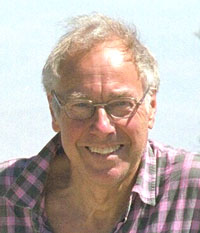Love, Hope & BrainLars Martensson,
M.D.,
|
Email to Lars Martensson, May 2004"The antipsychotics rendered an experience which was rich
in brightness and depth first into one of terror and helplessness and finally
into a blunted and empty state. – Printed with permission, name withheld by request |
|
|
This is a very brief and simple introduction and explanation of the author's
views (of psychosis, of the brain/mind problem, and of neuroleptic drugs).
Start
by reading this brief introduction and then,
– for a deeper explanation of psychosis and the brain/mind problem, read
Brain/Mind & Schizophrenia (1989) and
– for a deeper critique of neuroleptic
(anti-psychotic) drugs, read Should Neuroleptic Drugs Be Banned? (1985).
"What is a human being? We associate the concept of a human being with our highest values: Freedom, Love, Creativity, Insight, and Understanding. When we are free, when we love, when we create, when we have insight and understanding, we feel alive and our life has meaning. Only then are we really human ... Let us look at the human brain (Fig 1) ..."
This paper is based on a public lecture. It is an overview of the author's views
of the highest functions of the human brain, of psychosis, of schizophrenia. It
is longer and includes more illustrations than the previous paper.
You will meet Hebriana

and learn how she overcame her schizophrenia


Article in the DAGENS NYHETER, the leading Swedish daily newspaper, March 25th, 1990, with the question Who Killed McMurphy?
"The patients become quiet and passive. In psychiatry this is
referred to as "improvement". But in effect the apathy of the patients simply
reflects the fact that higher brain functions have been more or less paralyzed.
When the inner life of a person is destroyed with neuroleptic drugs his or her
development deteriorates. Life as a whole becomes wasted."
This is the most important paper. It is the result of a decade of focused effort
to understand the problems of brain and mind and of schizophrenia. You should
probably read Love, Hope & Brain Science, 2004, or Love, Hope & Brain Science,
1997, and Overcoming Psychosis, 1989, before this paper, which is much more demanding.
"An important thing was that I did not try to stop the film, that I saw it as inevitable".
This comment by Eva reflected my instruction that she must not interfere or worry about what happens on the screen. Her responsibility was to describe it in detail.
Eva continued: "When I woke up I went out. All of a sudden I was full of joy. I knew that now everything was as it should. All danger was gone. The sun was shining.""
You will meet three people who tell us about their experience of overcoming
schizophrenia.
Read this paper as an introduction and illustration to Brain/Mind &
Schizophrenia.
This is a detailed critique of neuroleptic (anti-psychotic) drugs. The arguments
are as valid and relevant today, almost 20 years later.
- Publication History
of Should Neuroleptic Drugs Be Banned?
Here you can read a number of articles about Neuroleptic Drugs and Schizophrenia published on the Op-Ed page of the leading Swedish daily the DAGENS NYHETER.
Här kan du läsa artiklar om neuroleptika och schizofreni publicerade på DN debatt 1985-1990.
|
Click here for
www.moshersoteria.com |
Lars Martensson, M.D.
Email:
larsmartensson ![]() yahoo.com
yahoo.com
Revised April 18, 2022
|
|
Addresses to this website : |
